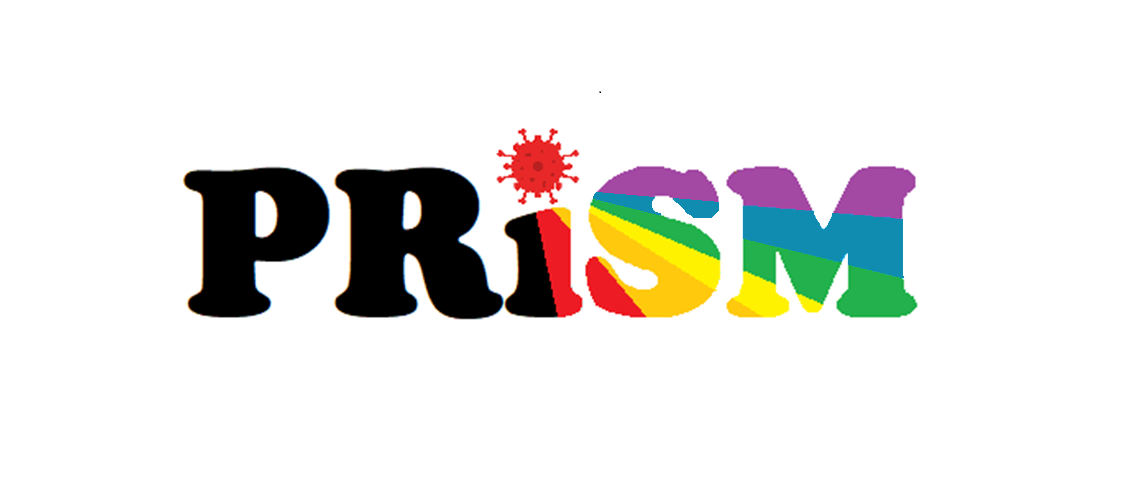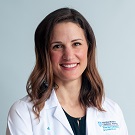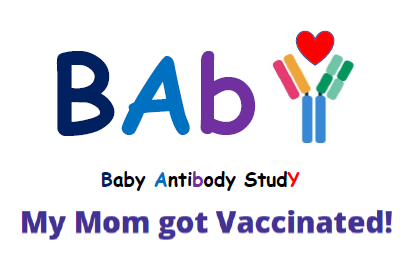Mass General Brigham COVID-19 Pregnancy Biorepository
Edlow Lab: Andrea Edlow, MD, MSc
The Edlow Laboratory is investigating the effects of maternal obesity and maternal viral infection in pregnancy on placental immune activation, fetal brain development and offspring behavior, using preclinical models and human cohorts.
During the COVID-19 pandemic, our lab pivoted to expand our focus to maternal SARS-CoV-2 infection in pregnancy. Partnering with a multi-disciplinary team, we have worked across the Mass General Brigham system to establish one of the largest COVID-19 Pregnancy Biorepositories in the country.
The COVID PRISM (Pregnancy Registry of Immune responSes and Maternal Microbiome) study is a research study aimed at furthering our understanding of COVID infection and vaccination in pregnancy. With over 1,000 participants, we have made numerous discoveries regarding the immune response of pregnant individuals to COVID and COVID vaccination in pregnancy. If you want to read more about our research and what we have learned, please use this website to read our recent publications and coverage in the news.
Any interested participants can email us at COVIDPregnancy@PARTNERS.ORG.
Key Insights
Through samples generously provided by enrolled participants, we have generated key insights into maternal immune response, vertical transmission and placental antibody transfer.
Discover key insights
- Placental infection and fetal infection are rare, at least with the original strain of SARS-CoV-2 (the virus that causes COVID-19)
- Protective antibodies formed in response to natural infection with COVID transfer to the fetus, but at lower-than-expected levels
- Male and female placentas respond differently to maternal COVID infection
- Pregnant and lactating individuals have strong antibody responses to COVID vaccination, similar to those of non-pregnant, and antibody can transfer to the baby via the placenta and breastmilk
- Read more about our research findings in our latest publications
Who We Are
We are a multi-disciplinary research team, working across the Mass General Brigham system.
Meet our team
 Contact Principal Investigator (PI): Andrea Edlow, MD, MSc
Contact Principal Investigator (PI): Andrea Edlow, MD, MSc Brigham and Women’s Hospital Site PI: Kathryn Gray, MD, PhD
Brigham and Women’s Hospital Site PI: Kathryn Gray, MD, PhD
Kathryn Gray is an Ob/Gyn and physician-scientist at Brigham and Women’s Hospital (BWH) who specializes in Maternal-Fetal Medicine (MFM) and Clinical Genetics. Dr. Gray's research uses precision medicine approaches to understand pregnancy-specific conditions including maternal, fetal, and obstetric disorders. Dr. Gray received her MD/PhD from the University of Michigan in 2007 and completed her residency in Obstetrics and Gynecology at Emory University in 2011. She also completed her combined MFM/Clinical Genetics fellowship at Brigham and Women’s and Boston Children’s Hospitals in 2016. Dr. Gray is the recipient of an NIH-NHLBI K08 career development award. She has also been awarded an NIH-NHLBI Trans-omics Precision Medicine grant for genome sequencing and other omics on a large pregnancy cohort, the Boston-Colombia Collaborative for Adverse Pregnancy Outcomes (BCC-PREG). Dr. Gray is the BWH site PI for a biorepository of samples from pregnancies with SARS-CoV-2 infection and COVID vaccination. In addition, she is the co-PI for the BWH LIFECODES longitudinal pregnancy biobank. You can follow her on Twitter: @ob_kjg. Lydia Shook, MD
Lydia Shook, MD
Dr. Shook is a Maternal-Fetal Medicine specialist in the Department of Obstetrics and Gynecology at Massachusetts General Hospital in Boston, Massachusetts, and an Investigator in the Vincent Center for Reproductive Biology. She received her undergraduate and medical degrees from Yale University in New Haven, Connecticut, and completed residency in Obstetrics and Gynecology at Yale-New Haven Hospital. She recently completed the Maternal-Fetal Medicine fellowship at Massachusetts General Hospital in 2021, during which time she joined the Edlow lab as a Vincent Research Fellow to explore how maternal exposures and disease states, such as obesity, might affect fetal development through placental inflammation and immune activation. She was awarded the BWH/MGH NICHD WRHR (Women’s Reproductive Health Research) Faculty Career Development Award to support her work with the Edlow Lab investigating the impact of maternal SARS-CoV-2 infection and COVID-19 vaccination in pregnancy. Madeleine Burns
Madeleine Burns
BS in Biology, MS in Medical Science
I have loved working on the because it affords me the opportunity to develop relationships with participants and their families, while simultaneously contributing to COVID-19 research in the pediatric and obstetrics populations. I have found that this study created a sense of community and excitement amidst new parents, who faced undeniable stress being pregnant during a global pandemic. The shared stories and connections I made during study visits will continue to shape my interest in research and medicine. Babatunde Akinwunmi
Babatunde Akinwunmi
MD, MPH, MMSc
I am primarily a Physician and currently a research scientist. I enjoy working on all the multiple projects in the lab that relate to maternal fetal medicine and genetics. The COVID-19 pandemic has given us an opportunity to move very fast in developing and accomplishing cutting-edge research with the great leadership of the team. I also enjoy working on the Pregnancy and COVID-19 projects because we have the opportunity to answer many questions that give pregnant and breastfeeding women a hope of safe pregnancy and motherhood even in the face of the pandemic. Our research is also helping non-pregnant women in allaying their fears and making great decisions.
Stepan Demidkin
BS in Biomedical Engineering
The study provides me and others an irreplaceable opportunity to work in a dynamic research setting that is both engaging and fast-paced. Our focus remains to be able to answer crucial questions on the effects of mother’s disease history on the pediatric and neonatal populations, while the strategies taken to achieve this goal are constantly evolving and sensitive to the events accompanying the COVID-19 pandemic. The combined efforts of clinical and research work being performed help to materialize new ideas and discoveries, knowledge behind which aims to mitigate future pandemics’ impacts and better understand pregnancy in the environments that they create. Being part of this study helps build a sense of unity and mutual commitment to continue acquiring data and promising results.
Rose DeGuzman
B.S. in Nutritional Biochemistry, Ph.D. in Behavioral Neuroscience
Dr. Rose M. De Guzman is a behavioral neuroscientist and postdoctoral research fellow. Prior to joining Dr. Andrea Edlow’s lab, she received her B.S. in Nutritional Biochemistry at UC Davis and earned her Ph.D. in Behavioral Neuroscience at University at Albany, NY. In the laboratory of Dr. Damian G. Zuloaga, her Ph.D. dissertation investigated alterations in corticotropin-releasing factor receptor type 1 levels within the hypothalamus and preoptic area during the postpartum period. Outside of lab, she is actively involved in organizations that mentor and empower high school students, first-generation college students, and women in neuroscience.
 Molly Siegel
Molly Siegel
Maternal-Fetal Medicine Fellow
News Coverage and Publications
Our research and findings have been featured across a myriad of outlets and publications. Read more to learn about our work.
In the News
Studying SARS-COV2 and mRNA Vaccines in Mothers and Babies - Advances in Motion - May 12, 2022
Massachusetts study highlights benefits of pregnant mothers getting COVID-19 vaccine - WCVB - February 22, 2022
First study to detect Delta variant of SARS-CoV-2 in maternal bloodstream and placenta in cases of stillbirth and pregnancy complications -- January 13, 2022
Pandemic poses short- and long-term risks to babies, especially boys - NBC News - December 20, 2021
Pregnant and Breastfeeding Women are Slower to Respond to Vaccination, Researchers Report - The New York Times - October 27, 2021
Babies from a Covid-19 mRNA vaccinated pregnancy will still need primary jabs - Clinical Trials Arena - October 25, 2021
Four Things to Know About the New Boston-based Research on COVID-19 and Pregnant Women - The Boston Globe - October 21, 2021
COVID-19 Pregnancy Studies Detail Impacts from Second Vaccine Doses, Male Fetuses - Center for Infectious Disease Research and Policy, University of Minnesota- October 20, 2021
Fetal Sex a Factor in COVID-19 Immune Response, Study Says - The Harvard Gazette - October 19, 2021
Should You Get a COVID Booster if You Are Pregnant? - The New York Times - October 19, 2021
Sex of the Fetus Influences the Mother's Response to COVID-19 Infection, New Research Shows - STAT - October 19, 2021
Review: COVID-19 Vaccination in Pregnancy and Lactation: Current Research and Gaps in Understanding - Front. Cell. Infect. Microbiol. - Sept. 16, 2021
Podcast: Women’s Health: Fertile Ground for COVID Myths / Andrea Edlow, Stephanie Gaw, Alice Lu-Culligan, Leena Mithal, Steve Stecklow – EPIDEMIC with Dr. Celine Grounder
COVID-19 Vaccination During Pregnancy Likely Benefits Moms and Babies – NICHD - Sept. 13, 2021
COVID vaccines and breastfeeding: what the data say - Nature - June 23, 2021
COVID vaccine effective in pregnant women –The Naked Scientist (BBC) - April 20, 2021
More Signs COVID Shots Are Safe for Pregnant Women – WebMD - April 20, 2021
Covid-19 Vaccinations of Pregnant Mothers Also Protect Newborns, Studies Suggest – Mar. 31 - The Wall Street Journal
Vaccination Calculus is Changing for New Parents – Mar. 31 - The Atlantic
Estudio revela cómo vacunas contra COVID-19 podrían beneficiar a embarazadas y sus bebés – Mar. 30 - Telemundo (video)
AJOG Video: COVID-19 Vaccination Response in Pregnant and Lactating Women: A Cohort Study - Mar. 29
Pfizer, Moderna COVID Vaccines Safe for Pregnant Women – Mar. 29 - WebMD
Pregnant women 'didn't have the data' – until now: COVID-19 vaccines are safe and effective, even for babies, study shows - Mar. 27 – USA Today
Reporte: vacunas de Pfizer y Moderna son efectivas en embarazadas y lactantes - Mar. 26 - Telemundo
Pregnant women show robust immune response to COVID-19 vaccine, study finds - Mar. 25 - TODAY
Pfizer and Moderna are safe and effective in pregnant women, provide antibodies to newborns - Mar. 25 - ABC News
Study says Covid-19 vaccines provide protection for pregnant and lactating women—and their newborns – Mar. 25 - CNN
Pregnancy and COVID: what the data say - Nature - March 9, 2021
Pregnant Or Lactating? Vaccinated People Might Be Passing On COVID Immunity To Their Babies - Mar. 2021 - Washington Post
Vaccinated Mothers Pass Covid Antibodies to Babies In Utero and Through Breastmilk, Early Studies Show - Mar. 2021 - WBUR
Q&A: Pregnant women with COVID-19 pass few antibodies to infants - Healio News - January 14, 2021
Evidence Builds That Pregnant Women Pass Covid Antibodies to Newborns - Jan. 2021- New York Times
Research reveals compromised transfer of SARS-CoV-2-specific antibodies through the placenta - Dec. 2020 - Mass General
Pregnant women with COVID-19 don’t pass virus to newborns, but also may pass fewer-than-expected antibodies to newborns - Dec. 2020 - Mass General
Publications
- Lydia L. Shook, MD; Caroline G. Atyeo, BS; Lael M. Yonker, MD; Alessio Fasano, MD; Kathryn J. Gray, MD, PhD; Galit Alter, PhD; Andrea G. Edlow, MD, MSc. Durability of Anti-Spike Antibodies in Infants After Maternal COVID-19 Vaccination or Natural Infection. JAMA. Published online February 07, 2022. doi:10.1001/jama.2022.1206
- Shook LL and Edlow AG. “COVID vaccines safely protect pregnant people: the data are in”. Nature. January 12, 2022.
- Hui L, Knight M, Edlow AG, Homer C, Danchin M. Pregnancy in the time of COVID-19: what are the challenges for maternity care? Clinical Chemistry, 2021; epub before print, hvab266, https://doi.org/10.1093/clinchem/hvab266.
- Edlow, AG, Li, JA, Collier ,AY, Atyeo, C, James, KE, Boatin, AA, Gray, KJ, Bordt,EA, Shook, LL, Yonker, LM, Fasano, A, Diouf K, Croul, N, Devane S, Yockey, LJ, Lima, R, Shui, J, Matute, JD, Lerou, PH, Akinwunmi, BO, Schmidt A, Feldman, J, Hauser, BM, Caradonna, TM, De la Flor, D, D’Avino, P, Regan, J, Corry, H, Coxen, K, Fajnzylber J, Pepin D, Seaman, MS, Barouch DH, Walker BD, Yu XG, Kaimal AJ, Roberts DJ, Alter G. Assessment of maternal and neonatal SARS-CoV-2 viral load, transplacental antibody transfer, and placental pathology in pregnancies during the COVID-19 pandemic. JAMA Netw Open. 2020;3(12):e2030455. doi:10.1001/jamanetworkopen.2020.30455.
- Atyeo, C, Pullen KM, Bordt EA, Fischinger, S, Burke, J, Michell, A, Slein, MD, Loos, C, Shook, LL, Boatin AA, Yockey LJ, Pepin, D, Meinsohn, M, Nguyen, NMP, Chauvin, M, Roberts, DJ, Goldfarb, IT, Matute, JD, James, KE, Yonker, LM, Bebell, LM, Kaimal, AJ, Gray, KJ, Lauffenburger DA, Edlow AG*, Alter G*. Compromised SARS-CoV-2-specific placental antibody transfer. Cell 2021 Feb 4;184(3):628-642.e10. doi: 10.1016/j.cell.2020.12.027. Epub 2020 Dec 23. * co-corresponding, equal contributions.
- Bartsch YC*, Wang C*, Zohar T, Fischinger S, Atyeo C, Burke J, Kang J, Edlow AG, Fasano A, Nilles EJ, Woolley AE, Karlson EW, Hopke AR, Irimia D, Fischer ES, Ryan ET, Charles R, Julg BD, Lauffenburger DA, Yonker LM and Alter G. Humoral signatures of protective and pathological SARS-CoV2 infection in children. Nature Medicine, 27: 454–462, 2021. https://doi.org/10.1038/s41591-021-01263-3,
- Sheridan SD, Thanos JM, De Guzman RM, McCrea LT, Horng J, Fu T, Sellgren CM, Perlis RH*, Edlow, AG*. Umbilical cord blood derived microglia-like cells to model COVID-19 exposure. Transl Psychiatry, 11: 179, 2021. https://doi.org/10.1038/s41398-021-01287-w *equal contributions
- Gray KJ, Bordt EA, Atyeo C…Elovitz MA, Alter G*, Edlow AG*. COVID-19 vaccine response in pregnant and lactating women: a cohort study. Am J Obstet Gynecol, 21 Mar 26:S0002-9378(21)00187-3. doi: 10.1016/j.ajog.2021.03.023. Online ahead of print. *equal contributions.
- Atyeo C, DeRiso EA, Davis C, Bordt EA, DeGuzman RM, Shook LL, Yonker LM, Fasano A, Akinwunmi B, Lauffenburger DA, Elovitz MA, Gray KJ*, Edlow AG*, Alter G*. COVID-19 mRNA vaccines drive differential Fc-functional profiles in pregnant, lactating, and non-pregnant women. Science Transl Med. 2021, DOI: 10.1126/scitranslmed.abi8631 *indicates co-last authors/equal contributions.
- Bordt EA, Shook LL, Atyeo C, Pullen KM, De Guzman RM, Meinsohn MC, Chauvin M, Fischinger S, Yockey LJ, James K, Lima R, Yonker LM, Fasano A, Brigida S, Bebell LM, Roberts DJ, Pépin D, Huh JR, Bilbo SD, Li JZ, Kaimal A, Schust D, Gray KJ, Lauffenburger D, Alter G, Edlow AG. Maternal SARS-CoV-2 infection elicits sexually dimorphic placental immune responses. Science Transl Med. 2021, DOI: 10.1126/scitranslmed.abi7428.
- Pullen KM, Atyeo C, Collier AY, Gray KJ, Belfort MB, Lauffenburger DA, Edlow AG, Alter G. Selective functional antibody transfer into the breastmilk after SARS-CoV-2 infection. Cell Reports. 2021, accepted, pre-proof at: https://doi.org/10.1016/j.celrep.2021.109959.
- Shook LL, Bordt EA, Meinsohn MC, Pepin D, De Guzman RM, Brigida S, Yockey LJ, James KE, Sullivan MW, Bebell LM, Roberts DJ, Kaimal AJ, Li JZ, Schust D, Gray KJ, Edlow AG. Placental expression of ACE2 and TMPRSS2 in maternal SARS-CoV-2 infection: are placental defenses mediated by fetal sex? J Infect Dis. 2021, jiab335, https://doi.org/10.1093/infdis/jiab335. [Epub ahead of print] PMID: 34293137
- Roberts DJ*, Edlow AG*, Romero R*, Coyne CB, Ting DT, Hornick JL, Zaki SR, Das Adhikari U, Serghides L, Gaw SL, Metz TD, on behalf of all members of the NIH/NICHD SARS-CoV-2 Placental Infection Workshop. SPECIAL REPORT: A standardized definition of placental infection by severe acute respiratory syndrome coronavirus 2 (SARS-CoV-2), a consensus statement from the National Institutes of Health/Eunice Kennedy Shriver National Institute of Child Health and Human Development (NIH/NICHD) SARS-CoV-2 placental infection workshop. Am J Obstet Gynecol. 2021, published online August 5, 2021. DOI:https://doi.org/10.1016/j.ajog.2021.07.029
- Roberts DJ, Bebell LM, Edlow AG. SARS-CoV-2 ACE2 and TMPRSS2 Receptor Protein Expression Patterns Throughout Gestation. J Infect Dis. 2021 Apr 21. doi: 10.1093/infdis/jiab164. [Epub ahead of print] PubMed PMID: 33880519; PubMed Central PMCID: PMC8083236.
- Shook LL, Collier AY, Goldfarb IT, Diouf K, Akinwunmi BO, Young N, Brown A, Hacker MR, Kaimal AM, Gray KJ, Edlow AG. Vertical transmission of SARS-CoV-2: consider the denominator. Am J Obstet Gynecol MFM. 2021 Apr 28:100386. doi: 10.1016/j.ajogmf.2021.100386. [Epub ahead of print] PubMed PMID: 33932627; PubMed Central PMCID: PMC8081748.
- Zhou J, Choi S, Liu H, Zhang J, Tian Y, Edlow AG, Ezashi T, Roberts RM, Ma W, Schust DJ. Is SARS-CoV-2 infection a risk factor for early pregnancy loss? ACE2 and TMPRSS2 co-expression and persistent replicative infection in primitive trophoblast. J Infect Dis. 2021, Jul 22;jiab309. doi: 10.1093/infdis/jiab309. PMID: 34293134.
- Yonker LM, Gilboa T, Ogata AF, Senussi Y, Lazarovits R, Boribong BP, Bartsch YC, Loiselle M, Noval Rivas M, Porritt RA, Lima R, Davis JP, Farkas EJ, Burns MD, Young N, Mahajan VS, Hajizadeh S, Herrera Lopez XI, Kreuzer J, Morris R, Martinez EE, Han I, Griswold K Jr, Barry NC, Thompson DB, Church G, Edlow AG, Haas W, Pillai S, Arditi M, Alter G, Walt DR, Fasano A. Multisystem inflammatory syndrome in children is driven by zonulin-dependent loss of gut mucosal barrier. J Clin Invest. 2021 May 25;. doi: 10.1172/JCI149633. [Epub ahead of print] PubMed PMID: 34032635.
- Goldfarb I, Clapp MA, Soffer M, Shook LL, Rushfirth K, Edlow AG, Boatin AA, Kaimal AJ, Barth WJ, Bryant A. Prevalence and severity of coronavirus disease 2019 (COVID-19) illness in symptomatic pregnant and postpartum women stratified by Hispanic ethnicity. Obstet Gynecol, 136(2):300–302, 2020.
- Yonker LM, Neilan AM, Bartsch Y, Patel AB, Regan J, Arya P, Gootkind E, Park G, Hardcastle M, St John A, Appleman L, Chiu ML, Fialkowski A, De la Flor D, Lima R, Bordt EA, Yockey LJ, D’Avino P, Fischinger S, Shui JE, Lerou PH, Bonventre JV, Yu XG, Ryan ET, Bassett IV, Irimia D, Edlow AG, Alter G, Li JZ, Fasano A. Pediatric SARS-CoV-2: clinical presentation, infectivity, and immune responses. J Pediatrics, 227(5): 45-52, 2020. DOI:https://doi.org/10.1016/j.jpeds.2020.08.037.
- Shook L, Shui JE, MD, Boatin AA, Devane S, Natalie Croul N, Yonker LM, Matute JD, Lima RS, Schwinn M, Cvrk D, Gardner L, Azevedo R, Stanton S, Bordt EA, Yockey LJ, Fasano A, Li JZ, Yu XG, Kaimal AJ, Lerou PH, Edlow AG. Rapid establishment of a COVID-19 perinatal biorepository: early lessons from the first 100 women enrolled. BMC Med Res Methodol, 20: 215, 2020. https://doi.org/10.1186/s12874-020-01102-y
- Lima, R., Gootkind, E.F., De la Flor, D, Yockey LJ, Bordt EA, D’Avino P, Ning S, Heath K, Harding K, Zois J, Park G, Hardcastle M, Grinke KA, Grimmel S, Davidson SP, Forde PJ, Hall KE, Neilan AM, Matute J, Lerou P, Fasano A, Shui J, Edlow AG, Yonker LM. Establishment of a pediatric COVID-19 biorepository: unique considerations and opportunities for studying the impact of the COVID-19 pandemic on children. BMC Med Res Methodol 20: 228, 2020. https://doi.org/10.1186/s12874-020-01110-y
- Soffer, MD, Shook, LL, James, K, Sawyer, M, Ciaranello, A, Mahrouk, R, Bernstein, SN, Boatin, AA, Edlow, AG, York-Best, C, Kaimal, AJ, Goldfarb, IT. Protocol-driven intensive outpatient management of pregnant patients with symptomatic COVID-19, 2020. Open Forum Infect Dis, ofaa524, https://doi.org/10.1093/ofid/ofaa524.
- Lydia L Shook, MD, Sara Brigida, BA, James Regan, BS, James P Flynn, BS, Abbas Mohammadi, MD, Behzad Etemad, PhD, Molly R Siegel, MD, Mark A Clapp, MD, MPH, Jonathan Z Li, MD, Drucilla J Roberts, MD, Andrea G Edlow, MD MSc, SARS-CoV-2 placentitis associated with B.1.617.2 (Delta) variant and fetal distress or demise, The Journal of Infectious Diseases, 2022;, jiac008, https://doi.org/10.1093/infdis/jiac008
.
Follow-up Studies for Moms and Babies after COVID-19 or COVID-19 Vaccination in Pregnancy
Helping Us Grow Stronger (HUGS) / Abrazos Study
The MGH HUGS/Abrazos program is a community health intervention designed for pregnant or recently pregnant individuals who would benefit from short-term community and behavioral health services. Currently, our study is investigating the effectiveness of the HUGS/Abrazos program by administering questionnaires regarding a variety of participants' mental health indicators before and after completion of the program. Participants are also given a chance to provide feedback on the program, in an effort to strengthen the program's delivery and individual services.
If you are interested in participating, please email us at COVIDPregnancy@partners.org or email the MFM team lead, Dr. Molly Siegel directly at msiegel@mgh.harvard.edu.
BABY (Baby AntiBodY) Study
 We are interested in learning more about the transfer and persistence of antibodies in babies born to individuals who received a COVID-19 vaccine during pregnancy. The study involves collecting samples at 2 and 6 months of life. We are able to do the study visits at a time and location convenient to you (i.e. home visit or at pediatrician visit, whatever you are most comfortable with). The samples we are interested in collecting are:
We are interested in learning more about the transfer and persistence of antibodies in babies born to individuals who received a COVID-19 vaccine during pregnancy. The study involves collecting samples at 2 and 6 months of life. We are able to do the study visits at a time and location convenient to you (i.e. home visit or at pediatrician visit, whatever you are most comfortable with). The samples we are interested in collecting are:- If you’re currently breastfeeding/pumping, we would be interested in collecting a couple drops of breast milk (only if you’re comfortable and have extra)
- A dirty diaper from baby with stool in it (if they have one within 24 hr of the visit)
- A blood sample from baby – we are using a microneedle device that collects surface capillary blood from the babies in order to avoid a painful heel prick/venipuncture. The collection takes about ~2 min and is painless for the little ones – we haven’t had a baby cry yet!
Healthy Brain and Child Development Study
We hope to better understand stress associated with infection in pregnancy. We are enrolling individuals who had a COVID-19 diagnosis during pregnancy and individuals without a COVID-19 diagnosis during pregnancy. Participation involves two to four study visit at the Labs of Cognitive Neuroscience at Boston Children’s Hospital when your baby is 3, 6, 9 and 12 months of age. We will be collecting maternal health and mental health information and will be using a variety of child friendly brain imaging and behavioral tasks at each visit such as eye tracking, EEG, cognitive testing, and some families can volunteer to have an MRI at 9 months.
We offer up to $100 for participation, compensation for travel expenses/parking, and childcare for any siblings who may come along. Your child will also receive a small toy at each visit. Together we aim to shed light on factors that impact child development to better support families and children as they grow.
If you are interested in participating in our study please call (857) 218-3011 or email us at familiesHEAL@childrens.harvard.edu.
Assessing COVID-19 Effects on NeuroDevelopment (ACEND)
The ACEND Study is a remote, survey-based study enrolling people who gave birth during the COVID-19 pandemic, regardless of prenatal SARS-CoV-2 exposure and/or infection. The ACEND Study aims to discover the effects that direct SARS-CoV-2 infection and other pandemic-related social and financial stressors have on child brain development in the first two years of life, as well as what behaviors and interventions could potentially be protective to children born during this time.
Interested potential participants and/or collaborators can reach out to b4study@mgh.harvard.edu or visit the study website for more information about the ACEND Study and other studies being conducted by the Early Brain Development Initiative at Mass General.
Thank you to our funders!
- NIH/NICHD (IMPROVE Initiative)
- March of Dimes
- Simons Foundation
- Massachusetts Combined Pathogen Readiness (MassCPR)
- Massachusetts General Hospital Department of Obstetrics and Gynecology
Videos
During the COVID-19 pandemic, our lab pivoted to expand our focus to maternal SARS-CoV-2 infection in pregnancy. Partnering with a multi-disciplinary team, we have worked across the Mass General Brigham system to establish one of the largest COVID-19 Pregnancy Biorepositories in the country.
In the largest study of its kind to date published in American Journal of Obstetrics & Gynecology, Dr. Edlow and researchers have found mRNA COVID vaccines to be highly effective in producing antibodies against the SARS-CoV-2 virus in pregnant & lactating women.
CBS News: Doctors say pregnant women are at a higher risk of developing complications from COVID-19. That has many wondering if the coronavirus vaccine is safe for them and their unborn child. Nikki Battiste spoke with Dr. Andrea Edlow, about a new analysis of the vaccine's effect on pregnancy.
OB/GYN Research
The state-of-the-art research conducted in the OB/GYN Department is focused on improving obstetric and gynecologic care for women across the lifespan.
OB/GYN Advances in Motion
Information for health care professionals about the latest OB/GYN breakthroughs, research and clinical advances from Mass General.
Support the Vincent Center for Reproductive Biology
You are making a significant contribution to advancing women’s health care not only at Mass General but around the world.
